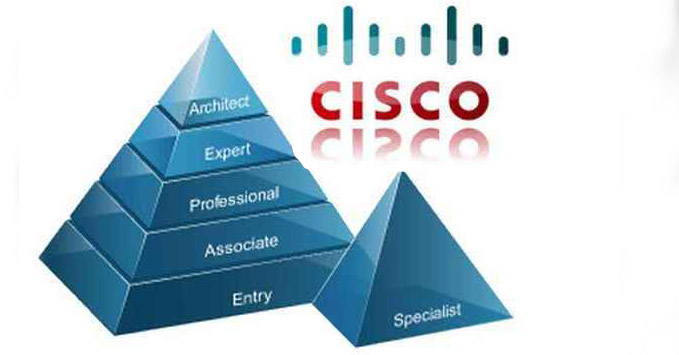Cisco is a well-known name in the IT sector since it is the largest manufacturer of network infrastructure. However, most people are unaware that Cisco has its product line specialized to the various demands of data and cloud performance management systems.
Cisco Systems Inc. is a networks and communications company that offers various products and services. The company’s commercial routing and switch technologies, which direct data, phone, and video traffic across networks worldwide, are undoubtedly its most well-known products.
The Cisco Career Certificate programme is all-encompassing. It ensures that IT professionals have the skills and knowledge needed to support Cisco products and handle clients’ technology problems on several fronts. It begins at the entry-level positions and proceeds through the partner, professional, and expert levels until ending at the designer level (in some qualification areas).
Overview of the Cisco (CCNA) Certification Program
The following is a list of all Cisco certifications currently available:
- Cisco Entry Networking Technician Certification (CCENT)
- Technician with Cisco Certification (CCT)
- Associate in Cisco Certified Networking (CCNA certificate)
- Associate in Cisco Certified Design (CCDA)
- Cisco Certified Network Certified Professional (CCNP)
- Cisco Design Professional Certification (CCDP)
- Certified Internetwork Expert by Cisco (CCIE)
- Cisco Certified Design Professional (CCDE)
- Architect Cisco Certified (CCAr)
Although Cisco’s career program offers a variety of certifications and pathways to pursue, the two most common are Network Design and Network Operation.
The CCENT certificate is the first step on the conventional network operating certification path. The CCNA certification comes next, followed by the CCNP, and lastly, the CCIE.
A variety of specialities are available through the CCNA Certification programme. These credentials recognize a person’s expertise in a particular Cisco technology, such as data centre application services, voicemail and messaging, or rich media.
Cisco specialities are separated into two categories:
- technical experts
- digital transformation experts
There are now 15 specializations available to IT professionals in these two areas.
Entry-Level Cisco Certifications
Suppose you’re new to the IT business and haven’t had much experience dealing with Cisco products and technologies. In that case, you’ll need to start with the entry-level certifications before moving up the CCNA certification ladder. CCENT and CCT are two entry-level certificates offered by Cisco CCT.
The Cisco Certified Entry Networking Technician is the first on the list. Individuals who complete this certification will be able to operate basic-level networks and implement security protocols simultaneously. The Cisco Certified Technician is the second certification at this level.
Associate-Level Certifications from Cisco
Cisco offers two associate-level certifications: Cisco (CCNA) and Cisco (CCDA) (CCDA). Depending on the pathway you select, you must pass one CCDA exams or CCNA exams to get the certification.
A person must have a valid CCENT, CCNA Routing, Switching, or any CCIE qualification and complete a single extra certification exam to get the CCDA. Cisco also offers a Cisco Certified Design Associate certification at the associate level. This certification is part of Cisco’s design route, and it aims to develop abilities in developing and managing network solutions and their security components.
Professional-Level Cisco Certificates
Cisco offers two professional qualifications:
- Cisco Certified Network Professional (CCNP)
- Cisco Certified Design Professional (CCDP)
This tier’s initial qualification is the Cisco Certified Network Professional. This certification delves into the details of designing and deploying network infrastructures. To acquire this certificate, you must pass four tests in total.
Job Offers
The following list, while not inclusive, outlines some frequent job options:
- CCENT: Roles in the help desk or as a technician
- CCT: Engineer or systems administrator
- CCNA: Engineer, technician, or analyst
- CCDA: Engineer, analyst, interface developer, or technical professional with the designation.
- CCNP: Network administrator, engineer, or advanced technician, as well as senior-level employment, require the certification.
Things To Remember
The IT industry is constantly changing. Trained professionals must stay up-to-date on any new developments in their specialities. Specialist certifications and the CCIE are valid for two years, while entry, associate, and professional-level credentials are valid for three years. The CCAr has a five-year validity period.
In conclusion, if you bear the CCNA certification cost, it will immensely help you improve your career prospects or help you perform better at your current job.
